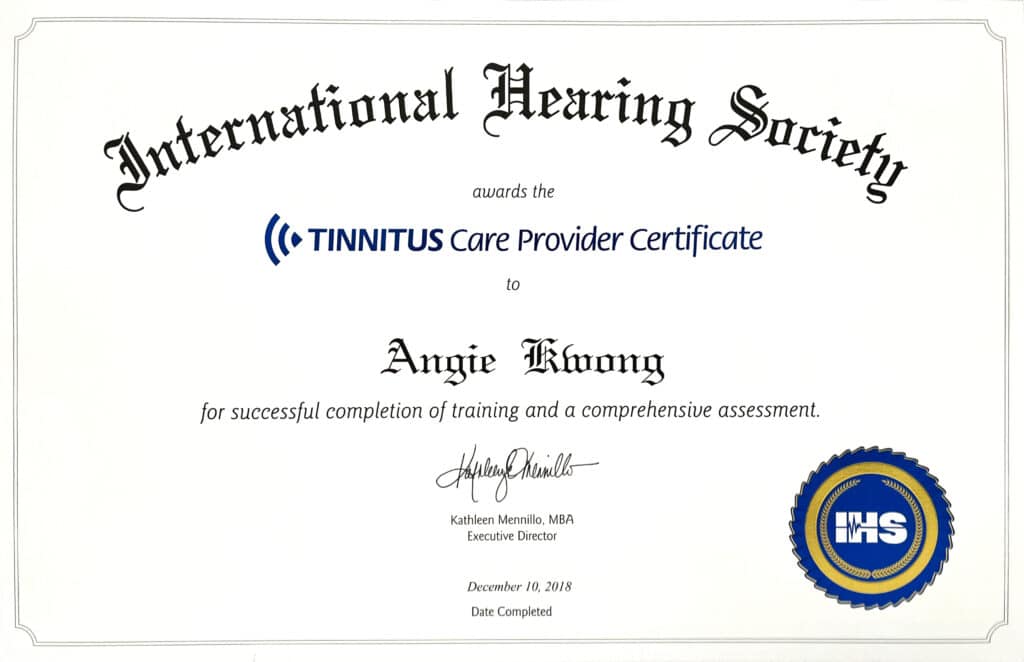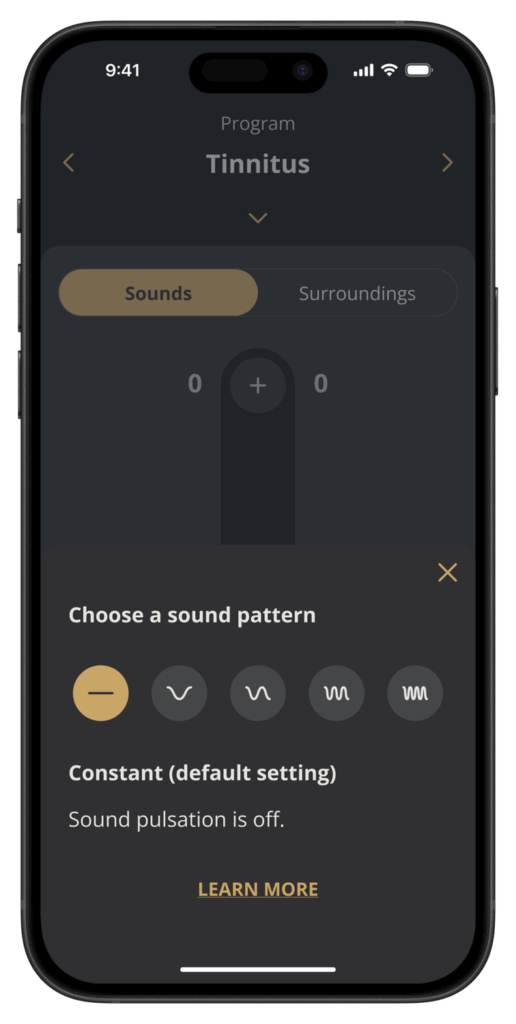Call Us
Contact Us
Tinnitus is a common symptom of hearing loss, and understanding this connection is the first step toward relief. At Central Hearing, we offer advanced hearing aids with personalized features designed to ease symptoms and improve daily comfort.
Schedule a Hearing Test
Tinnitus, often described as ringing in the ears, is the perception of sound in the ears or head without an external source. It often becomes more noticeable in individuals with hearing loss, as the brain may try to ‘fill in the gaps’ when sound is not received clearly. The sensation can vary in pitch and intensity, affect one or both ears, and may interfere with concentration, sleep, and emotional well-being.
Tinnitus is the perception of sound without an external source. Many describe it as ringing in the ears, though it can also take the form of buzzing, humming, hissing, clicking, or whooshing. The sounds may be constant or occasional, soft or loud, and they can affect one ear or both. Tinnitus is most often linked to age-related hearing decline or long-term exposure to loud noise. Because every experience is different, recognizing these common patterns can be an important first step toward seeking professional support.
Tinnitus and hearing loss are often connected. Many people who experience tinnitus also have some degree of hearing loss, even if they haven’t noticed it yet. When the brain receives fewer sound signals due to hearing loss, it may “fill in the gaps” by creating phantom sounds, which we perceive as ringing, buzzing, or humming. Not everyone with tinnitus has hearing loss, but the two conditions frequently occur together. A professional hearing evaluation can determine whether hearing loss is present and provide clear recommendations for the next steps in managing your hearing health.
Tinnitus can be linked to a variety of factors. Common causes include:
A professional hearing assessment can help determine whether hearing loss is present, although it cannot identify every possible cause of tinnitus.
For clients with hearing loss, hearing aids with tinnitus relief features may be recommended. These devices amplify everyday sounds and include masking or sound therapy options, helping the brain refocus and making tinnitus less noticeable. This can improve both comfort and overall quality of life.
If you experience tinnitus in one ear only (unilateral tinnitus), we recommend consulting a physician or an Ear, Nose, and Throat (ENT) specialist to rule out other potential medical conditions.
Learn more about our tinnitus relief hearing aids.
Tinnitus is not a disease, but it can interfere with focus, sleep, and emotional well-being, often making daily life more difficult. While there is no single cure, effective relief is possible. In many cases, tinnitus is also one of the earliest signs of hearing changes.
At Central Hearing, we recommend that clients with unilateral tinnitus be referred to a physician or Ear, Nose, and Throat (ENT) specialist to rule out other potential causes. For those with hearing loss, hearing aids can be highly effective. By helping the brain refocus on everyday sounds, they reduce awareness of tinnitus, making it less noticeable and improving overall comfort and quality of life.
Learn more about our tinnitus relief hearing aids.
“Hearing aids can be an effective tool for tinnitus relief, especially when hearing loss is also present. By amplifying external sounds, they reduce the contrast between environmental noise and the internal ringing of tinnitus. Many modern devices also include dedicated relief features that help shift focus away from these sounds. With the right fitting and ongoing support, hearing aids can make tinnitus less noticeable and improve overall quality of life.
Learn more about our tinnitus relief hearing aids.
Modern hearing aids can help reduce the impact of tinnitus with features designed to improve comfort and daily listening.

